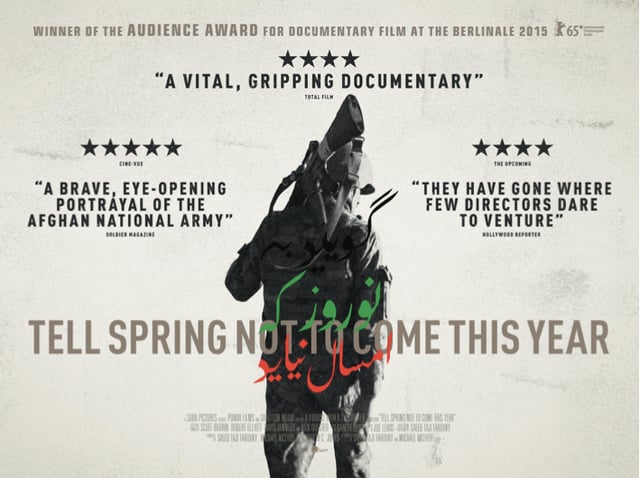So how are things going in Afghanistan? Well... The "Taliban now holds more territory than in any year since 2001," according to data from Western and Afghan officials cited in a recent Washington Post report.
And it looks like things are going to get a lot worse.
Earlier this week, on January 5, a 30-year-old Green Beret US Special Forces soldier, Staff Sgt. Matthew McClintock, died in an hours-long firefight with the Taliban near the city of Marjah in southern Helmand province.
After ousting the totalitarian Taliban in 2001 for harboring 9/11 mastermind Osama bin Laden, US combat operations officially ended in the country on December 28, 2014. Still, soldiers have stayed on in a US-led NATO mission to train up Afghanistan’s police and security forces. Obama plans to keep more than 5,000 on there after he leaves office.
Lately US Special Forces have been playing an increasing combat roll as the Taliban has flexed its muscle and now holds 30% of the country’s territory after a series of increasingly brazen attacks. But there’s another factor behind this: the Afghan police and security forces are failing.
How and why is outlined in a transcript obtained by The Post of a closed October 2015 Afghan National Security Council meeting between the commander of US forces in Afghanistan, Gen. John F. Campbell, and Afghan officials, such as Abdullah Abdullah, the country’s chief executive.
Abdullah told the meeting: “Our forces lack discipline. They lack rotation opportunities. We haven’t taken care of our own policemen and soldiers. They continue to absorb enormous casualties.”
To give them breathing space and a chance to regroup, Gen. Campbell promised to use Special Forces units, like the one Staff Sgt. McClintock was part of, to temporarily hold off Taliban militants. “But I can’t make you fight,” he said. “You’ve got to want it more than we do.”
This is unlikely. Problems with the security forces are systemic. This is evident in the excellent documentary Tell Spring not to Come this Year released in early 2015.
Directors Michael McEvoy, a former liaison officer for the British Army in Helmand, and documentarian Saeed Taji Farouky followed an Afghan National Army (ANA) battalion for a year as they confronted the transition of power in Helmand Province — which, even then, was one of the most unstable areas of the country.
“We know almost nothing about who’s going to inherit that war,” said Taji Farouky during a screening at London’s Frontline Club. That's why there's no voiceover in the film, which is told completely by Afghan soldiers.
What they find is soldiers are “not paid very well, they don’t go on leave for ages, [and] the food sucks — big time,” said McEvoy. “The U.S. stopped paying for their food budget and the Ministry of Finance turned to the Ministry of Defence and said ‘well, we haven’t got any money.’ So basically they just cut the food budget in half. By the end it was a piece of bread for breakfast, a plate of plain rice for lunch, and then for dinner some sort of watery soup with essence of meat.”
These conditions don’t breed much loyalty. “A lot of them run away,” said McEvoy. “When they found out they were going to Sangin [a town in Helmand] 20 guys ran away.”
Unemployment "is obviously pretty big in Afghanistan,” he said. “Many of the soldiers are from the north and they would join up in big groups of lads from their villages just to find work.” One soldier they met “hadn’t been paid for 9 months” and “another soldier said that he’s not been on leave in 4 or 5 months.” McEvoy wondered “what’s actually motivating these guys to fight, and can they keep it up long-term?”
This doesn’t mean that many others aren’t loyal and join for a mix of reasons, including “a genuine sense of national pride,” said McEvoy.
Nevertheless, the country’s political situation is unsteady. A power sharing agreement between President Ashraf Ghani and Abdullah, the chief executive, still hasn’t produced the appointment of a defense minister.
ISIS has even set up a stronghold in Nangarhar Province, and the Taliban are fighting against them, claiming rogue Afghan National Army fighters were providing support to IS.
“I will not allow Helmand to fall,” Campbell told the Afghan National Security Council last October. Whether he could say that same for the country's security services is uncertain, but what is certain in the short-term is Western forces will continue to be part of the fight.
